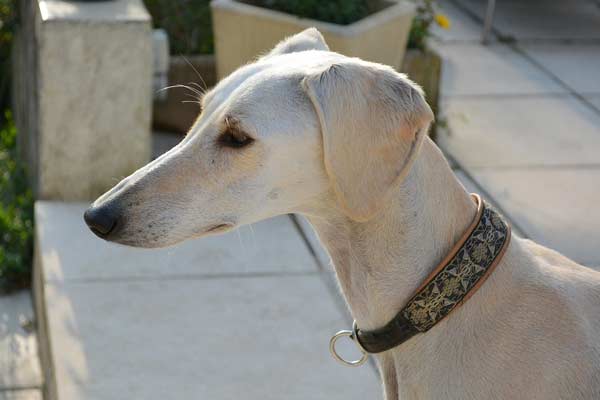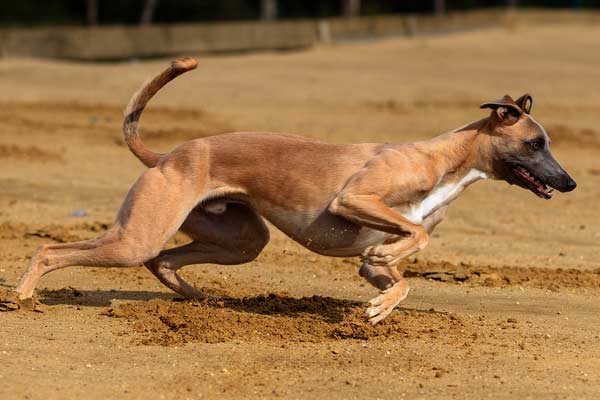Do Greyhounds Fart a Lot? The Smelly Truth Revealed!
Do greyhounds fart? If you’re a greyhound owner, you know the answer. Greyhounds can be gassy, and that’s putting it mildly.
But why do greyhounds fart so much? What can you do to reduce the amount of gas they produce? And what are the most common questions about greyhound farts?
This article will answer all your questions about greyhound farts. We’ll dive into the science of why greyhounds are so gassy and give some tips on reducing the smell. So buckle up because it’s time to get to the bottom of why greyhounds fart a lot.
Do Greyhounds Fart a Lot?
The answer is yes. Greyhounds are known for their gassiness. It’s common for them to pass loud, smelly farts throughout the day. The smell of their farts can be pretty pungent and linger in the air for a while.
But why do greyhounds fart so much? It’s not just because they eat a lot or are overweight. The answer lies in their GI tract and the type of food they eat.
What Causes Farts in Greyhounds?
Greyhounds have a long, complex gastrointestinal (GI) tract. This means their food takes longer to digest, making it easier for gas to build up.
In addition, greyhounds often eat a diet high in carbohydrates. This type of food is complex for the body to break down and can increase gas production.
The type of food they eat also plays a role. Some types of food, such as grains and legumes, are more challenging to digest and can lead to more gas production.
In addition, certain types of food, such as dairy and fatty foods, can cause an increase in gas production.
Greyhounds are more prone to flatulence because of their fast metabolism. This means their bodies break down food quickly, which in turn can lead to increased gas production.
The teeth problem is also a potential reason why greyhounds fart often. Greyhounds have relatively small mouths, making it more difficult to chew their food correctly. If a greyhound’s teeth are in bad shape, the food isn’t properly broken down, producing more gas.
Just like humans, dogs can become stressed from changes in their environment or from changes in routine. Stress can also lead to an increase in gas production in greyhounds.
This can further increase the gas produced in the digestive system, resulting in more flatulence.
Worms and other parasites can also affect a greyhound’s digestion and lead to flatulence. A vet can diagnose if a dog has any intestinal parasites and recommend the appropriate treatment.

How to Reduce Farting in Greyhounds
If your Greyhound is gassy, there are a few things you can do to reduce the amount of gas they produce. Here are some tips for reducing a greyhound’s gas production:
• Avoid table scraps and dairy products, which can be challenging to digest and produce excessive gas.
• Regularly brush their teeth since bad dental hygiene can cause them to swallow large food particles, increasing gas production.
• Keep your Greyhound away from the trash, as many owners unknowingly feed their dogs leftovers or other items that are not easily digested, leading to more flatulence.
• Exercise regularly as it helps keep the digestive system functioning smoothly, resulting in less gas build-up.
• Consider changing your Greyhound’s diet with options like switching to grain-free kibble or adding probiotics designed specifically for dogs.
• If all else fails, seek professional help from your vet, who may be able to diagnose any underlying conditions contributing to the excessive flatulence.
Dietary Tips to Reduce Farting in Greyhounds
You can follow a few dietary tips to reduce the gas your Greyhound produces.
First, make sure your Greyhound is eating the correct type of food. Avoid foods high in carbohydrates and opt for high-fiber, low-carb options.
In addition, limit the number of fatty foods in your Greyhound’s diet. These types of food are complex for the body to break down and can increase gas production.
Ensure your Greyhound drinks plenty of water and moisture-rich foods, such as canned dog food, to stay hydrated and help keep the system running smoothly.
Finally, use digestion-aiding supplements to help the body process food correctly. Probiotics are an excellent option for older greyhounds with digestion issues.
Finally, make sure your Greyhound is getting enough exercise. Exercise helps the body digest food more efficiently and can help reduce the amount of gas produced.
Common Questions About Greyhound Farts
Are greyhounds gassy?
Yes, greyhounds can be gassy. Their long gastrointestinal tract and fast metabolism can lead to an increase in gas production.
How can I reduce the amount of gas my Greyhound produces?
Switch to a low-carb, high-fiber diet, add probiotics to your Greyhound’s diet, and ensure your Greyhound is getting plenty of exercises.
Can a diet change reduce the amount of gas my Greyhound produces?
A diet change can help reduce the amount of gas your Greyhound produces. Switching to a low-carb, high-fiber diet can help reduce the amount of gas produced.
Do greyhounds fart a lot?
Yes, greyhounds do fart a lot. Their long gastrointestinal tract and fast metabolism can lead to an increase in gas production.
We hope this article has answered your questions about greyhound farts. If your Greyhound is gassy, there are a few things you can do to reduce the amount of gas they produce.
Switch to a low-carb, high-fiber diet, add probiotics to your Greyhound’s diet, and ensure your Greyhound is getting plenty of exercises.






